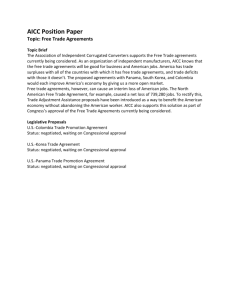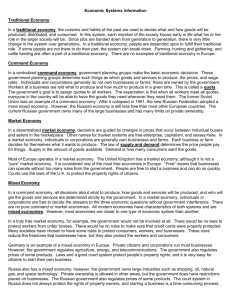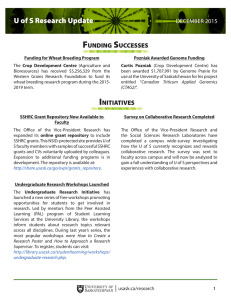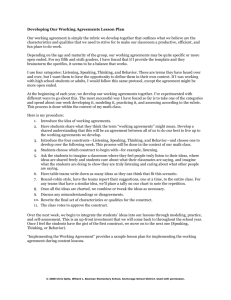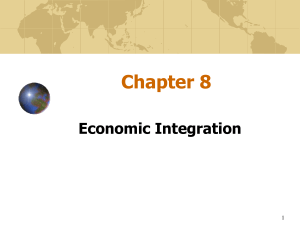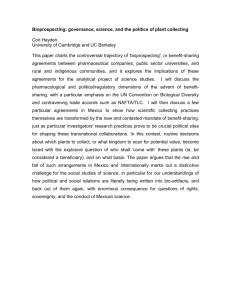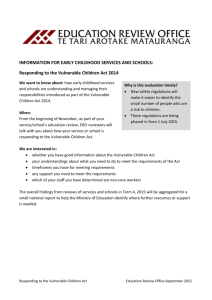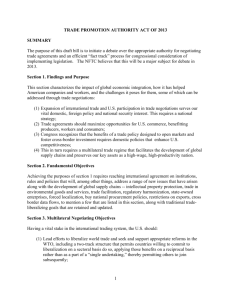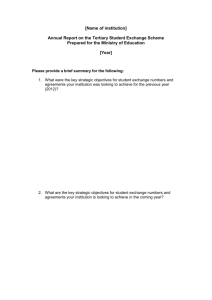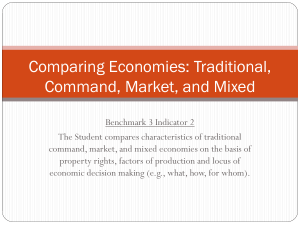DJPC`s Role in the Immigration Debate
advertisement
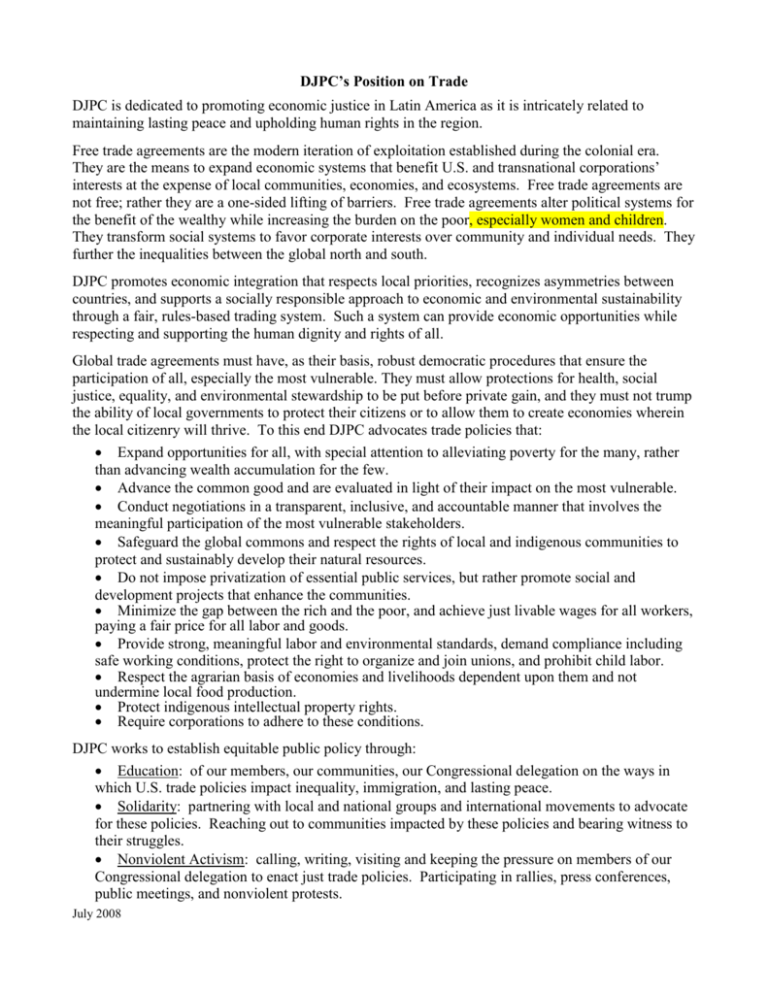
DJPC’s Position on Trade DJPC is dedicated to promoting economic justice in Latin America as it is intricately related to maintaining lasting peace and upholding human rights in the region. Free trade agreements are the modern iteration of exploitation established during the colonial era. They are the means to expand economic systems that benefit U.S. and transnational corporations’ interests at the expense of local communities, economies, and ecosystems. Free trade agreements are not free; rather they are a one-sided lifting of barriers. Free trade agreements alter political systems for the benefit of the wealthy while increasing the burden on the poor, especially women and children. They transform social systems to favor corporate interests over community and individual needs. They further the inequalities between the global north and south. DJPC promotes economic integration that respects local priorities, recognizes asymmetries between countries, and supports a socially responsible approach to economic and environmental sustainability through a fair, rules-based trading system. Such a system can provide economic opportunities while respecting and supporting the human dignity and rights of all. Global trade agreements must have, as their basis, robust democratic procedures that ensure the participation of all, especially the most vulnerable. They must allow protections for health, social justice, equality, and environmental stewardship to be put before private gain, and they must not trump the ability of local governments to protect their citizens or to allow them to create economies wherein the local citizenry will thrive. To this end DJPC advocates trade policies that: Expand opportunities for all, with special attention to alleviating poverty for the many, rather than advancing wealth accumulation for the few. Advance the common good and are evaluated in light of their impact on the most vulnerable. Conduct negotiations in a transparent, inclusive, and accountable manner that involves the meaningful participation of the most vulnerable stakeholders. Safeguard the global commons and respect the rights of local and indigenous communities to protect and sustainably develop their natural resources. Do not impose privatization of essential public services, but rather promote social and development projects that enhance the communities. Minimize the gap between the rich and the poor, and achieve just livable wages for all workers, paying a fair price for all labor and goods. Provide strong, meaningful labor and environmental standards, demand compliance including safe working conditions, protect the right to organize and join unions, and prohibit child labor. Respect the agrarian basis of economies and livelihoods dependent upon them and not undermine local food production. Protect indigenous intellectual property rights. Require corporations to adhere to these conditions. DJPC works to establish equitable public policy through: Education: of our members, our communities, our Congressional delegation on the ways in which U.S. trade policies impact inequality, immigration, and lasting peace. Solidarity: partnering with local and national groups and international movements to advocate for these policies. Reaching out to communities impacted by these policies and bearing witness to their struggles. Nonviolent Activism: calling, writing, visiting and keeping the pressure on members of our Congressional delegation to enact just trade policies. Participating in rallies, press conferences, public meetings, and nonviolent protests. July 2008
